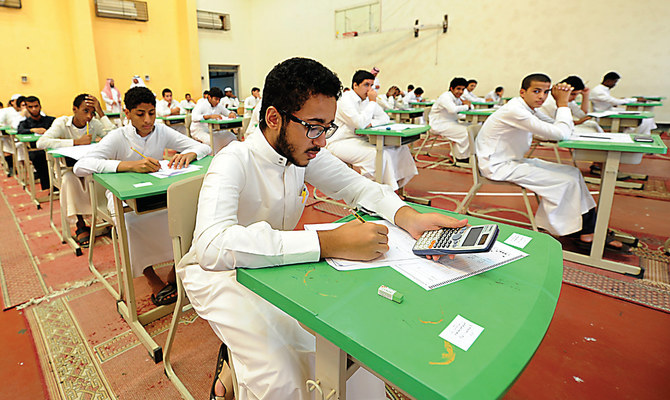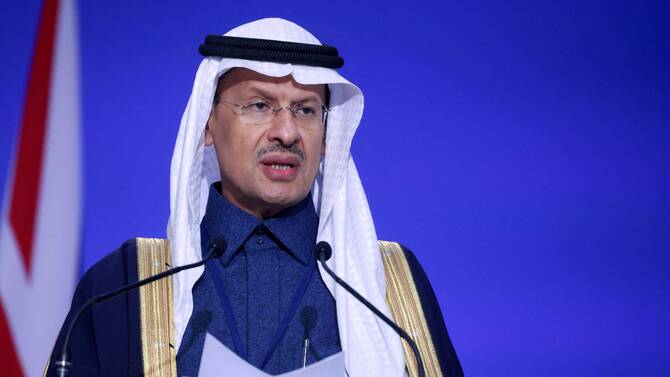CAIRO: Saudi Arabia is making significant strides in education technology, with substantial investments aimed at transforming and enhancing the sector.
The Kingdom’s government is actively promoting initiatives in this field, also known as edutech, recognizing their potential to revolutionize the schooling system.
According to industry experts, the Kingdom’s edutech landscape offers numerous opportunities for both local and foreign investors.
Venture data platform MAGNiTT has revealed the edutech sector is now one of the top five most-funded fields in the Kingdom.
In 2023, the industry saw a total of $50 million raised by Saudi-based startups, a 6 percent growth from the year before.
Furthermore, the edutech sector in the Kingdom witnessed substantial growth in 2022, surging by 2,069 percent compared to the previous year.
Nasser Al-Shareef, senior adviser of investment and privatization at the Saudi Ministry of Education, reiterated the possibilities for the industry in an article for Arab News earlier this year.
“By investing in education technology, both local and international investors can tap into a rapidly growing market with a high demand for innovative educational solutions. Saudi Arabia’s large youth population, coupled with its strong focus on education and digital transformation, creates a fertile ground for edutech investments,” he said.
“The Saudi government is supporting the growth of the edutech sector through various initiatives, policies, and funding programs. This support includes financial incentives, regulatory reforms, and partnerships with educational institutions. These measures not only attract investment but also provide a conducive environment for edutech startups to flourish,” he added.
Al-Shareef further stated that investing in the Kingdom’s edutech field offers opportunities across various segments of the education ecosystem.
This includes online learning platforms, virtual classrooms, and adaptive learning technologies, as well as educational content development, teachers’ training, and more.
“The potential for scalability and market penetration is significant, considering the increasing adoption of technology in schools, universities, and lifelong learning programs,” he added.
A national vision
Investing in Saudi edutech aligns with the Kingdom’s vision of establishing a knowledge-based economy, according to Al-Shareef.
By supporting innovative edutech solutions, investors play a crucial role in shaping the future of education and providing Saudis with modern, accessible, and personalized learning experiences.

The edtech industry is likely to make a significant contribution to the Saudi economy, especially after the privatization of the education sector.
Salem Ghanem, CEO of Faheem
The Vision 2030 initiative, which seeks to diversify the economy and reduce reliance on oil, is a significant driver behind the Kingdom’s investment in edutech.
The Saudi government has identified the development of a knowledge-based economy and the improvement of education quality as essential goals. Edutech is considered a key enabler in achieving these objectives.
Various government programs and initiatives have been launched to support the growth of edutech startups and companies in the country, Al-Shareef explained.
“For example, the Ministry of Investment has introduced initiatives to attract foreign investment in the edutech sector. These initiatives include offering incentives and streamlined processes for setting up edutech companies in the Kingdom,” he said.
An entrepreneurial spirit
Private investors have also shown increasing interest in the Saudi edutech sector. Venture capital firms and private equity holders are actively investing in edutech startups, recognizing the sector’s growth potential, Al-Shareef added.
Speaking to Arab News, Salem Ghanem – CEO of Saudi-based edutech startup Faheem – emphasized the critical role of digital tools in supporting the national vision.
“The edtech industry is likely to make a significant contribution to the Saudi economy, especially after the privatization of the education sector following the Kingdom’s Vision 2030,” Ghanem said.
He added: “The impact will be apparent in the created job opportunities and the decreasing unemployment rates, taking into consideration that the tutoring market could create an estimated 45,000 to 60,000 job opportunities.”
In an interview with Arab News, Mohamed Zohair, CEO and founder of Saudi-based YaSchools, emphasized the significant rise of the Kingdom’s edutech sector.
“The Saudi market, in general, is an excellent market, and the current period is more mature than before, especially with the unprecedented support in digital transformation, financial services, and accompanying legislation and regulations,” Zohair said.
Al-Shareef further emphasized Zohair’s point, stating that Saudi Arabia has witnessed a surge in venture capital investments in edutech startups, with three of the top 10 most-funded startups in the Middle East and North Africa region originating from the Kingdom.
“The increase in venture capital investments has had a significant impact on the sector in Saudi Arabia. It has provided a boost to the growth and development of edutech startups by injecting much-needed funding and resources into the sector,” Al-Shareef explained.
“With greater access to capital, these startups have been able to innovate, expand their operations, and enhance their technological solutions,” he added.
According to Al-Shareef, the influx of venture capital has drawn attention from both local and international investors, creating a favorable investment climate for the edutech sector in Saudi Arabia.
This increased investor interest has provided financial support and brought valuable expertise, mentorship, and networking opportunities to startups.
Furthermore, the availability of venture capital has enabled startups to attract and retain top talent by offering competitive salaries, benefits, and career growth opportunities.
This has helped build a skilled workforce in the edutech sector and drive innovation.
Overall, the rise in venture capital investments has fueled the growth and transformation of the edutech industry in Saudi Arabia, positioning it as a key player in the regional digital schooling landscape and contributing to the advancement of education and learning technologies in the Kingdom.














